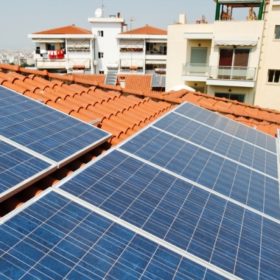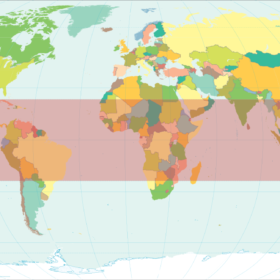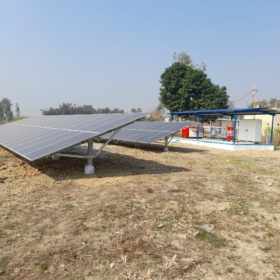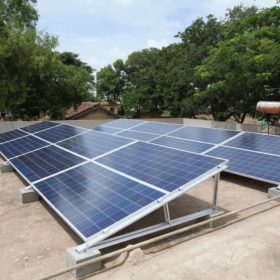Renewables cheaper than fossil fuel plants by 2030
A report by McKinsey & Company reinforces the widely-held view renewables will supplant fossil fuels in the energy system but also joins the chorus of voices warning the world is on track to fall well short of limiting global temperature rises this century to 1.5C.
Hard carbon for a high-energy sodium battery
Scientists in Japan demonstrated a hard-carbon electrode that can greatly increase the capacity of a sodium-ion battery. With further work on the long-term performance, the discovery could make sodium-ion batteries better able to compete on energy density with their lithium-ion counterparts.
Batteries and hydrogen to make residential off-grid PV technically feasible
Researchers in Finland have demonstrated the technical feasibility of an off-grid residential PV system combined with short-term battery storage and seasonal hydrogen storage. The proposed model is applicable only to northern climates, as higher levels of solar radiation in southern locations would mean a reduced need for seasonal storage. It was tested in an existing single-family house in Finland with a 21 kW rooftop array and a ground source 6 kW heat pump.
Telangana plans solar-powered floating restaurants and boats on water bodies
The floating restaurants and boats shall have on-board Li-ion battery storage to continuously power main motors and utility loads for six hours on a single charge. The batteries shall be charged by solar power and AC current from the shore to ensure the loads’ uninterrupted operation.
NTPC invites proposals for solarization projects in ISA member countries
The selected applicants are required to execute projects across categories like solar-powered cold storage, solar water pumps, solar-powered reverse-osmosis water systems and off-grid solar systems for primary health care centers on a turnkey basis. The work includes engineering, supply, erection, commissioning along with maintenance support for three years.
Tata Power arm hits ‘100 solar microgrids’ milestone
TP Renewable Microgrid has installed an aggregate 3 MW of solar microgrid capacity with its 100th project commissioned in Ratnapur, Uttar Pradesh.
The case for distributed solar with storage
Gopal Lal Somani, a former director at the Jaipur-based Rajasthan Renewable Energy Corporation Ltd (RRECL), says distributed solar systems with storage are the key to achieving India’s mission of supplying clean energy at an affordable cost to all. In this article, he dwells on the benefits and techno-commercial feasibility of these systems for the nation.
India’s 2030 electric vehicle ambition could create INR 85,900-crore battery opportunity
A new report says that the nation would require an estimated annual battery capacity of 158 GWh to realize its 2030 electric vehicle (EV) adoption target. Meeting this potential demand would require investments exceeding INR 85,900 crore (US$ 12.3 billion) in case battery manufacturing is 100% indigenized.
The market for hybrid energy and storage
“Efficient and economically viable energy storage, and optimal hybridization, are crucial for ensuring the expansion of renewable power generation both at the grid and micro-grid scale,” says Deepak Thakur, chief executive officer for the hybrid and energy storage business of Sterling and Wilson. He has spoken to pv magazine about the accelerated proliferation of renewables-plus-storage across markets.
The future of cars is electric – but how soon is this future?
According to a new report by BloombergNEF, 58% of global passenger vehicle sales in 2040 will come from electric vehicles, yet they will make up less than 33% of all cars on the road.














